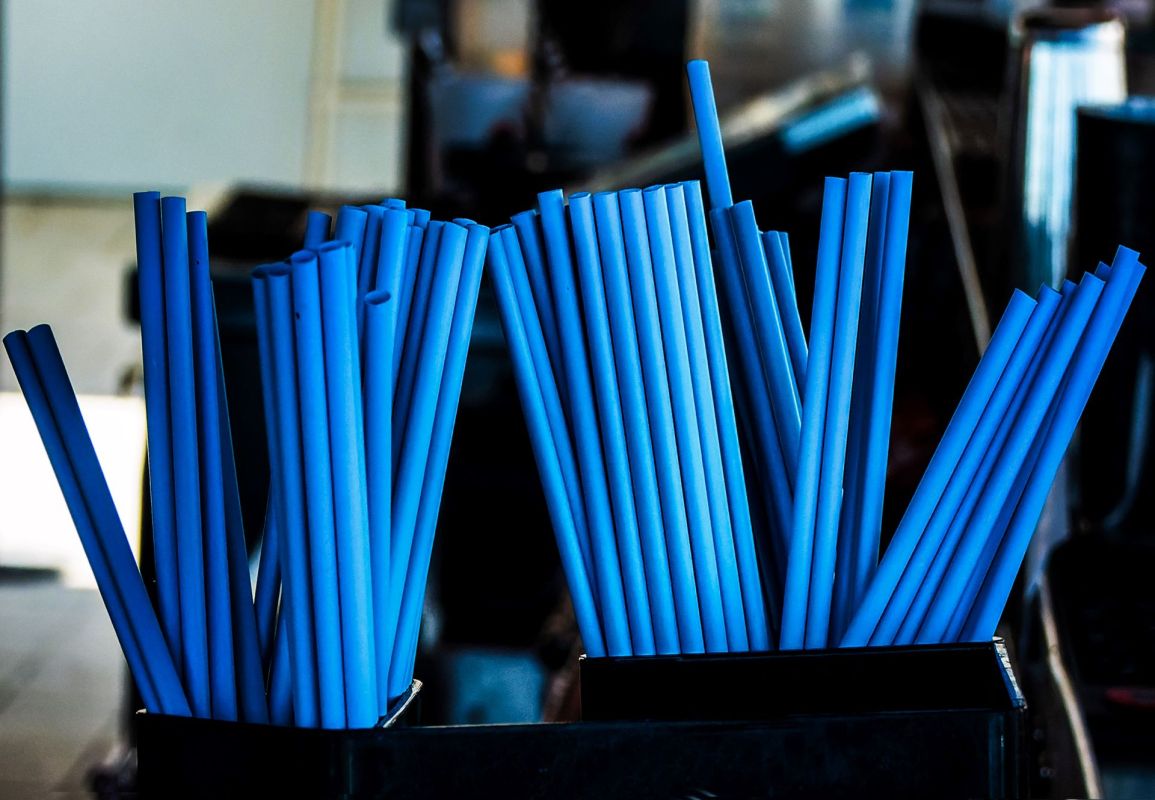Paper drinking straws — those sometimes-soggy but mostly plant-based utensils — may be more likely to contain "forever chemicals" than straws made of other materials, according to recent research.
The findings call into question paper straws' advantages as healthy and eco-friendly alternatives.
For now, researchers suggest that the best alternative may be metal straws or strawless sipping, since plastic, bamboo, and glass straws were all found to contain PFAS — poly- or perfluoroalkyl substances.
"We did not detect any PFAS in stainless steel straws," Groffen explained, "so I would advise consumers to use this type of straw — or just avoid using straws at all."
What suggests that paper straws are worse for you than other straws?
The recent study found that 18 out of 20 (90%) of paper straw brands that were tested contained PFAS, also known as "forever chemicals."
These chemicals earned their nickname because they linger in our bodies and the environment. Manufacturers have included PFAS in many products due to useful properties like water resistance, and these chemicals are found throughout the world.
The study tested straws made of various materials and found that paper brands had the highest PFAS proportion. Researchers also detected PFAS in 4 of 5 (80%) of the bamboo, 3 of 4 (75%) of the plastic, and 2 of 5 (40%) of the glass brands they tested. They found no PFAS in five steel straw brands.
Overall, 27 of 39 brands of all straws that were tested (69%) were found to contain PFAS of 18 different varieties.
The scientists published their findings in August in the journal Food Additives and Contaminants. The research, conducted in Belgium, echoed a U.S. study published in 2021. That study found PFAS in 36 of 38 brands of plant-based straws.
Why should you care about 'forever chemicals' in paper straws?
Scientists have linked certain PFAS to a slew of health issues, according to the Environmental Protection Agency. These include heightened risks of cancer, effects on fertility, and increased obesity risk, among other hazards.
One concern with paper straws is that, based on most brands having PFAS, researchers said manufacturers may be using the chemicals for water-resistant coatings. They also said the PFAS levels they found were low but can build over time.
"Small amounts of PFAS, while not harmful in themselves, can add to the chemical load already present in the body," Thimo Groffen, a study co-author, said in a statement.
Which straws should we grasp to be sustainable?
Although the discussion is complicated, the findings appear to dampen claims of paper straws being environmentally superior to plastic ones.
"Straws made from plant-based materials, such as paper and bamboo, are often advertised as being more sustainable and eco-friendly than those made from plastic," Groffen said. "The presence of PFAS in these straws means that's not necessarily true."
All straws have trade-offs in terms of resources used to create them, planet-heating gases released over their lifetimes, recyclability, and long-term impacts of pollution, as another study posted by the EPA explored.
Considering Americans use 170 million or more straws daily, the issue won't go away soon, and there's value in developing options like PFAS-free brands and fully biodegradable straws that don't get soggy.
Join our free newsletter for easy tips to save more, waste less, and help yourself while helping the planet.









